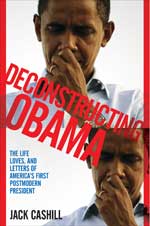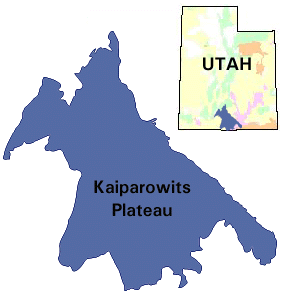Remembering the Clintons’ Western Land Grab
Get your copy of Deconstructing Obama

___
Jack Cashill's book:
Hoodwinked: How Intellectual Hucksters have Hijacked American Culture
© Jack Cashill
WND.com - April 14, 2014
Now that President Obama’s Bureau of Land Management has seemingly backed off its Nevada land grab, it might be time to review the most egregious land grab in recent American history.
The motivation for it can be traced back to the Democrats’ disastrous showing in the 1994 midterms, in which they lost both the House and the Senate.
Just a week later, Commerce Secretary Ron Brown and the Clintons headed to the one place in the world most capable of nurturing a Clinton comeback, the home base of the Riady family in Indonesia.
The Riadys had bailed Clinton out as governor when he mismanaged Arkansas’ Teacher’s Retirement Fund. They had rescued him twice on the 1992 campaign trail. They had seemingly bought off Clinton crony Webster Hubbell before he had to seek a deal with Whitewater prosecutors.
Soon enough, in Utah of all unlikely places, Clinton would reciprocate in what may have been the most shocking single transaction of his presidency.
In Indonesia, the Clinton entourage met twice with plutocrats James and Mochtar Riady. Joining them in Jakarta were any number of shadowy international figures briefly famous in the 1990s for their illegal fund raising.
In Jakarta, Clinton plunged into a speech that had to have dismayed any traditional Democrat or human rights activist who chanced to hear or read it.
“Keeping America on the front lines of economic opportunity has been my first priority since I took office,” Clinton claimed, adding later, “The second thing we are doing is working hard to expand trade and investment.”
So much for human rights. The CEOs, like John Bryson of Mission Energy, had more important things on their minds in any case.
In a letter to Brown, he asked the commerce secretary to “indicate your support for ADB funding” for a massive new coal-fired electric plant for Indonesia called the Paiton project.
For the record, the “ADB” is the Asian Development Bank, a multinational institution created to fight poverty in Asia and the Pacific.
The bank had no larger shareholder than the United States. Bryson asked Brown for his support because the ADB was reluctant to approve the loan.
There was good reason for its reluctance, namely the “involvement of Indo ruling family in the Mission project.”
Although Paiton was hailed as the first “private” electric plant in Indonesia, “private” here meant owned and operated, at least in part, by the “Indo ruling family,” the Suhartos.
According to Commerce Department notes, a certain percentage of this project was set-aside for a management company owned by Suharto’s daughter.
The cut for her and the other relatives was to be a $50 million upfront loan to be paid back through presumed profits generated by the plant.
The ABD was “skiddish” (sic) about offering what amounted to a $50 million bribe to the family of a corrupt oligarch paid, at least in part, by the U.S. taxpayer.
There is more. Suharto in-law Hashim had secured an exclusive, no bid, no-cut contract to supply clean coal to the Paiton power plant.
Hashim’s financial backer in his Indonesian coal mining business was none other than Mochtar Riady.
The Riady’s Lippo Group controlled one of the only two commercially viable low-sulfur coalmines in the world, this one conveniently located near the Paiton plant in Indonesia.
Although the ADB had the good sense not to make the loan, Mission CEO Bryson plowed right on, securing the loan through commercial sources. When the deal went through, Bryson thanked Brown profusely for his help in making it happen.
What happened next on the American end of this saga raised a host of troubling questions. The CNN.com report on the day it happened, September 18, 1996, well captured the general tenure of the reporting.
“Clinton Declares Utah Canyons A National Monument,” read the headline.
CNN’s Wolf Blitzer reported that using the Grand Canyon as “his picture perfect backdrop,” Clinton “unilaterally” declared a new 1.7 million-acre national monument seventy miles away in southern Utah.
“We’re saying, very simply, our parents and grandparents saved the Grand Canyon for us,” Clinton told the cheering crowd. “Today, we will save the Grand Escalante Canyons and the Kaiparowits Plateaus of Utah for our children.”
To his credit, Blitzer did not shy from the implicit controversy. He reported the people of Utah were “furious.” They claimed it was “a land grab” by the federal government “at the economic expense of the state.”
The fact Clinton made the announcement in Arizona, a potentially winnable state in the upcoming election, only angered them more.
The question looms, of course, as to why Clinton would make so bold a move just two months before the election. Blitzer raised the issue of coal, perhaps $1 trillion worth of clean, low-sulfur coal that would never be mined.
Said the president of this grand environmental gesture, “We can’t have mines everywhere and we shouldn’t have mines that threaten our national treasures.”
No, not everywhere, just in Indonesia. In a stroke of the pen, Clinton had handed the Riadys a monopoly on the world’s supply of low-sulfur coal.
The Riadys would exploit their monopoly for all it was worth. In fact, at the Paiton plant the price of the coal exceeded the price of the electricity produced.
Each kilowatt generated drove the plant deeper into debt. Of course, this meant there were no profits, which meant Suharto’s daughter and her brother-in-law did not have to pay back their up-front $50 million loan.
If this plot sounds familiar, it is because it is nearly identical to that of Mel Brooks’ play and movie, “The Producers.”
PLN, the Indonesian state power company, caught the drift of the plot. In 1999, the company sued the Clinton administration.
Its attorneys charged that U.S. officials knew the Paiton power plant contract to be awash in “corruption, collusion, and nepotism” from the beginning.
In December of that year, an Indonesian court ruled in its favor. The PLN estimated it had lost over $18 billion in total from Suharto corruption inside U.S. government sponsored power plant contracts.
By the way, the Enron Corporation contributed its own share to that $18 billion loss. But in the crush for cash after the 1994 election, and the media drive to re-elect the president, how was anyone to notice?



